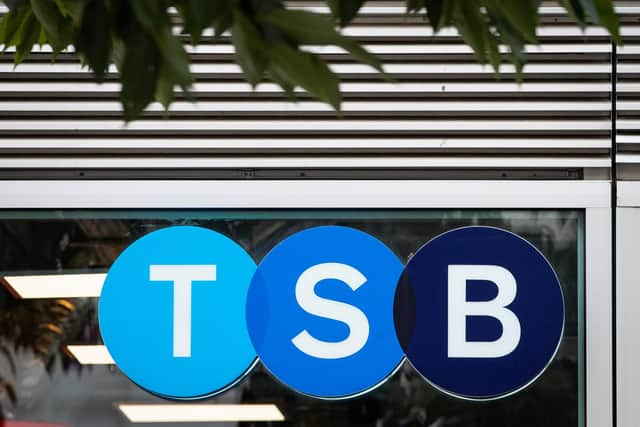TSB fined £48.7m over 2018 computer system meltdown
The Financial Conduct Authority (FCA) and the Prudential Regulation Authority (PRA) hit the bank with the penalty for “widespread” failures over the organisation and control surrounding the transfer of its IT systems and customer services data on to a new technology platform in April 2018.
The watchdogs said the issues following the upgrade saw disruption across TSB’s entire branch network, as well as its internet, mobile and telephone banking systems.
Advertisement
Hide AdAdvertisement
Hide AdThis left a “significant proportion” of its 5.2 million customers affected by the initial problems with the IT switchover. Some customers suffered ongoing issues and it took until December 2018 for TSB to return to business as usual, according to the regulators.


Mark Steward, FCA executive director of enforcement and market oversight, said: “The failings in this case were widespread and serious, which had a real impact on the day-to-day lives of a significant proportion of TSB’s customers, including those who were vulnerable.
“The firm failed to plan for the IT migration properly, the governance of the project was insufficiently robust and the firm failed to take reasonable care to organise and control its affairs responsibly and effectively, with adequate risk management systems.”
Sam Woods, deputy governor for prudential regulation at the Bank of England and chief executive of the PRA, added: “The PRA expects firms to manage their operational resilience as well as their financial resilience. The disruption to continuity of service experienced by TSB during its IT migration fell below the standard we expect banks to meet.”
The fine adds to the £32.7m already paid out by TSB to retail and corporate customers impacted by the debacle.
TSB chief executive Robin Bulloch said: “We’d like to apologise again to TSB customers who were impacted by issues following the technology migration in 2018. We worked hard to put things right for customers then and have since transformed our business.
“Over the past four years, we have harnessed our technology to deliver new products and better services for TSB customers.”
The tech troubles were triggered by a migration of customer data from former owner Lloyds’ IT system to a new one managed by the bank’s Spanish owner Sabadell. The regulators said while the data moved over to the new system successfully at the time of the upgrade, the new platform immediately experience technical failures.
Advertisement
Hide AdAdvertisement
Hide AdThe regulators said: “TSB’s IT migration programme was an ambitious and complex IT change management programme carrying a high level of operational risk. Its success was critical to TSB’s ability to provide continuity of critical functions and safety and soundness.
“However, the regulators’ found that TSB failed to organise and control the IT migration programme adequately, and it failed to manage the operational risks arising from its IT outsourcing arrangements with its critical third-party supplier.”
TSB would have been slapped with a £69.5m fine, but received a 30 per cent discount as it agreed to resolve the matter, according to the FCA and PRA. It deals yet another financial blow to TSB over the affair, after it revealed in the aftermath that it cost the group £330m.
Comments
Want to join the conversation? Please or to comment on this article.